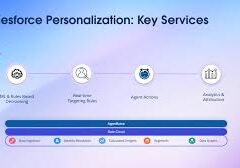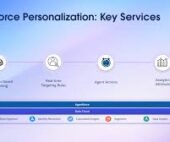What AI Agents Are Available on the Market?
Limitations of Operator, Computer Use, and Similar Agents
OpenAI Operator can be seen as a semi-autonomous agent, but many users note that it asks too many questions and requires excessive confirmations, even in situations that pose no risk:
“Operator is like driving a car with cruise control — occasionally taking your foot off the pedals — but it’s far from full-blown autopilot.”
Furthermore, although Operator is technically designed to interact with any website, in reality, it’s far from a universal solution. It works reliably on a predefined set of platforms for tasks like shopping and restaurant reservations (such as Instacart and OpenTable), where its functionality has been tested. But outside of these, its performance is inconsistent — sometimes even generating incorrect or entirely fabricated data.
Google’s Project Mariner, which aims to offer similar capabilities within Chrome, remains in closed beta for now. Meanwhile, many are eagerly anticipating a consumer product from Claude, which released the API for its Claude Computer Use agent (built on a slightly different principles) back in October 2024. One thing seems certain, though — it will be even more “cautious” than Operator, meaning it’s unlikely to handle tasks like sending emails or posting on social media on your behalf.
Thus, browser-based agents come with at least two key limitations:
— they work reliably only on a predefined set of websites;
— certain actions are prohibited (for example, allowing an agent to send emails autonomously could create conflicts between its owner and others).
Mobile agents face similar constraints. Take Perplexity Assistant, one of the earliest attempts at a “versatile” mobile AI agent — it still supports only a limited range of apps where it can operate on behalf of the user.
Deep Research Agents
To highlight the contrast, let’s look at AI agents built specifically for deep research. This category has seen a surge in new tools recently, and they deliver significantly better results than standard AI-powered web search.
- Perplexity Deep Research and Open Deep Research are both free to use.
- Grok 3 DeepSearch is temporarily available for free.
- GPT Researcher is open-source but requires an OpenAI API key, meaning you’ll need to cover the cost of token usage.
- ChatGPT Deep Research has just become available via a $20/month Plus subscription.
- Gemini Deep Research is available through Google One subscription.

Deep Research tools qualify as AI agents due to their high level of autonomy.
- They can reason, break down a given goal into tasks, and use insights from completed tasks to define new tasks that bring them closer to their objective.
- While they lack versatility and certain agentic features (for instance, “sensors” aren’t relevant in research scenarios), they excel at accomplishing their specific purpose.
At this stage, no truly agentic tool exists that can handle any problem on our behalf — even in a semi-autonomous mode, let alone a fully autonomous one. However, there are highly effective agents within specific domains, such as deep research agents.
With that in mind, let’s categorize typical AI applications into several groups (use cases) and tackle the following question for each group.













